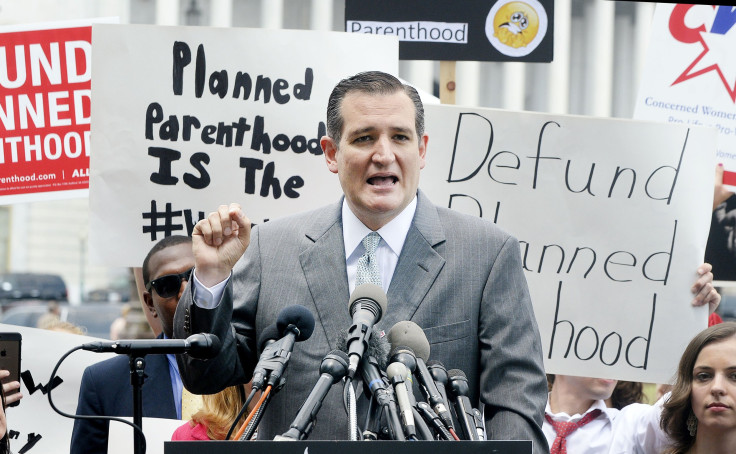Planned Parenthood: Democrats Block GOP Senate Bill To Defund

WASHINGTON -- An effort to revoke federal funding for Planned Parenthood in the wake of controversial videos taken inside the organization failed to clear a procedural hurdle in the Senate. Democrats successfully blocked the legislation with a 53 to 46 vote; 60 votes were needed to advance the legislation in the chamber.
The bill, authored by Iowa Sen. Joni Ernst, was being pushed and touted by Sens. Rand Paul, R-Ky., and Ted Cruz, R-Texas, GOP presidential hopefuls.
Republicans had hoped to persuade enough Democrats to join them to overcome the filibuster -- a term used to describe an instance when a bill can’t get 60 votes to advance in the Senate.
But ultimately only two Democrats broke with the party, West Virginia Sen. Joe Manchin and Indiana Sen. Joe Donnelly. Manchin has previously supported restrictions on abortion -- and is up for re-election next year in a conservative state. “ I do not believe that taxpayer money should be used to fund this organization; instead, those funds should be sent to other health care providers, including community health centers, which provide important women’s healthcare services,” Manchin said in a statement explaining his vote. “While my vote is one that will prevent taxpayers dollars from going to Planned Parenthood, I will remain committed to ensuring that all women in West Virginia and America receive the health care services they need.”
Sen. Mark Kirk, R-Ill., broke with Republicans and voted against the measure. Senate Majority Leader Mitch McConnell changed his vote from no to yes, a common procedural practice that allows him to request another vote on the bill in the future.
The latest effort to eliminate federal funding for Planned Parenthood comes as part of an organized public relations campaign against the organization, which in addition to providing abortions at some locations also conducts health screenings and prescribes birth control. The effort began when the anti-abortion group Center for Medical Progress began releasing secretly taped videos of Planned Parenthood employees. The first showed a doctor discussing the process of donating fetal tissue to medical research companies.
Republicans who oppose abortion seized the moment and began pushing to revoke Planned Parenthood’s federal funding. Federal law already prohibits the organization from using the funds to pay for abortions, but abortion opponents say the organization shouldn’t get any funds so long as it conducts the procedure. Democratic opponents of the effort argued that defunding the organization would take funds away from cancer screenings and contraception access.
Conservatives have vowed to continue the fight against abortion and Planned Parenthood.
In September, when Congress returns from the month-long August recess, it will have a month to agree to a spending bill to avoid another government shutdown. Some of the stanchest conservatives are discussing defunding Planned Parenthood as part of that spending bill. That would draw the ire of many Democrats. But Republicans are beginning to argue that risking a government shutdown is worth it if they can revoke funds from Planned Parenthood -- and wage a high-profile fight against abortion as the presidential campaign is underway.
© Copyright IBTimes 2024. All rights reserved.






















